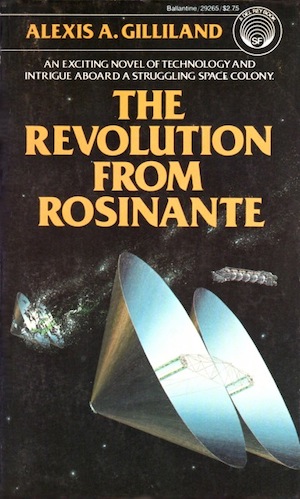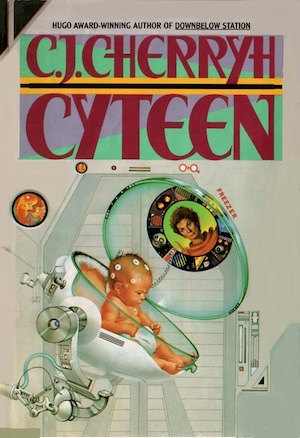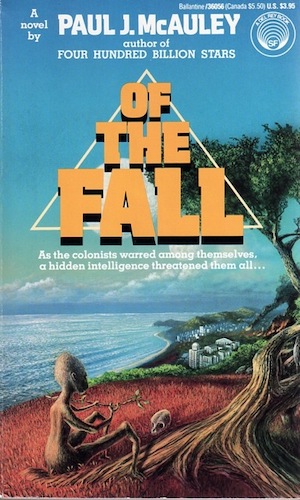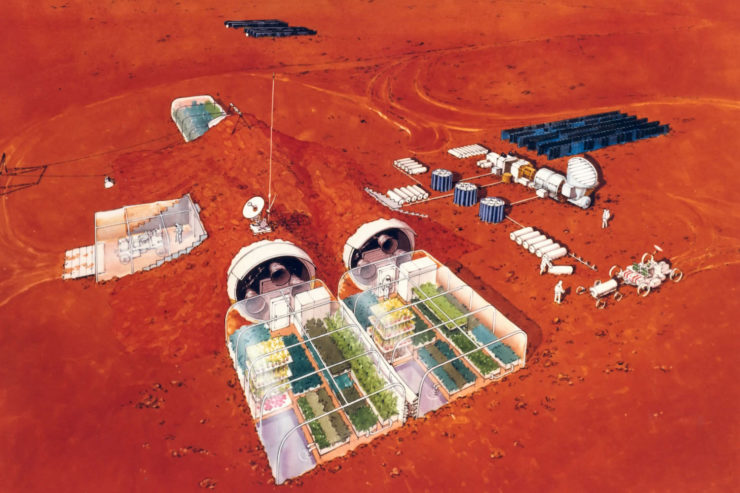Once developed, a planet is a boost to the whole human economy. More people! More production and consumer demand! More trade! But you have to develop the world first. For example, Mars. It could be terraformed and developed, as we know from countless SF novels. But how do you convince people to take the first step of settling on the Red Planet?
There is no indigenous population to enslave, so we would have to convince people to move there. How could we do that, given that the initial migrants will be the ones who get to discover all the exciting, counter-intuitive ways in which their new home can kill them? Not only that, but there’s already a long history (on Earth!) of new settlements that go bust, dooming investors and settlers alike.
Here are five ways to convince people to maroon themselves on Mars (or any other planet) so that a century or two down the road, with a bit of luck, their descendants might make someone else a lot of money.
Note that these methods can be combined…and in fact, are probably overlapping sets. Note also that eventual success is far from guaranteed. Success is not really the point.
Folly

Never underestimate the human ability to convince oneself that what one wants to be true is true. Take for example the stalwarts of the Darien scheme, who gambled a fifth Scotland’s circulating wealth on a colony on the isthmus of Panama. What, aside from deadly disease, inept planning, and attacks from rival nations, could possibly go wrong? Let skeptics scoff: were it not for the Darien scheme depth-charging the Scottish economy, Scotland might still be an independent nation.
An SF example might be found in the backstory to Alexis Gilliland’s The Revolution from Rosinante, which begins at the end of a period of exuberant space-colony investment. As the book opens, investors are beginning to understand that profits will not justify the investments made. A hilarious market correction ensures, with consequences felt from the fragile North American Union to the asteroid belt.
Fanaticism

Suppose one has a worldview whose clear superiority one’s more numerous neighbours inexplicably fail to acknowledge? Neighbours who permit rival philosophies to flourish despite being obviously inferior to the One True Way? That line of thought brought the Pilgrims to North America, where they could be free of Holland’s brutal policy of religious toleration. At first it didn’t turn out well: starvation and disease followed, as well as conflict with the natives whose land they were appropriating [see, again, footnote 1].
SF example: the founders of C. J. Cherryh’s Union intended to create an uninhibited technocratic state beyond Earth’s control, unrestricted by any moral considerations. Mission accomplished, as millions of azi were created, there to be exploited without the burden of pesky human rights laws.
Pride

If we do not settle this airless, radiation-soaked, toxic waste dump of a planet, then surely our rivals will! They will accrue all the glory that comes of homesteading an implacable, hostile hell-world. Whereas if we do it, the nation will be admired and feared!
SF example: Tau Ceti’s habitable world was settled thanks to national pride, as described in Paul J. McAuley’s 1989 Secret Harmonies (published as Of the Fall in the United States). To quote one character, “No one there wants to leave the stars to the Russians.” Of course, being at the far end of a twelve light-year sublight supply chain turns out to have significant downsides when the starships stop coming.
Transportation

The easiest way to get people to go along with grand schemes is not to give them any choice in the matter. This has been a very popular strategy throughout the years, from the comparatively benign way in which Scots Highlanders occupying land more suitable for sheep were encouraged to move to Cape Breton, to the far more brutal manner in which Africans were kidnapped and enslaved throughout the centuries.
SF example: Jerry Pournelle was keen on transportation as a plot enabler; it appears in a number of his stories, including 1976’s Birth of Fire, in which American gang member Garret Pittson is relocated at UN expense to Mars, where he can expect to spend the rest of his life developing the Red Planet’s economy. A return ticket is not included.
Desperation

Sometimes one is not running to somewhere but from somewhere. Settling a new land can be dangerous, but the possibility of death is better than the certainty of death (or worse) if one remains at home, whether death comes at the hands of invaders or mere natural disaster. Legions of refugees have surged across the face of our planet seeking survival elsewhere, often in the face of concerted efforts to deny them safe haven.
SF example: the homeworld of Zenna Henderson’s People was facing destruction. They had no choice but to migrate to Earth, even though the indigenous population was unlikely to welcome them. The People adopted human form and founded their communities far from prying human eyes. Will this strategy allow them to survive alongside the xenophobic, violent humans?
***
I’m sure you can think of many other such books and will tell me all about them in comments.
In the words of Wikipedia editor TexasAndroid, prolific book reviewer and perennial Darwin Award nominee James Davis Nicoll is of “questionable notability.” His work has appeared in Publishers Weekly and Romantic Times as well as on his own websites, James Nicoll Reviews and Young People Read Old SFF(where he is assisted by editor Karen Lofstrom and web person Adrienne L. Travis). He is a four-time finalist for the Best Fan Writer Hugo Award and is surprisingly flammable.










